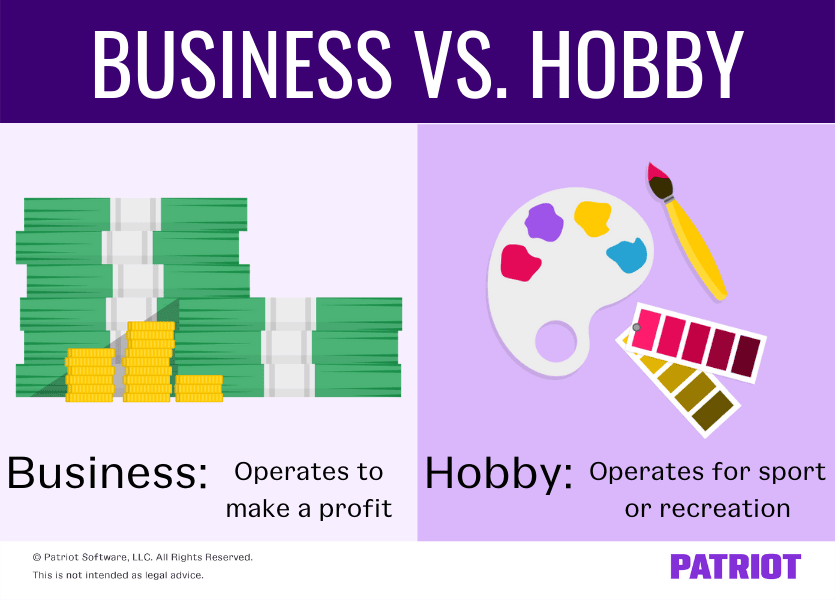You’ve decided to start a business. Er … is it a hobby? How do you know if you’re making a little side money from a hobby or running a full-fledged business? Does it matter? Well, the IRS cares about whether you have a business vs. hobby—so you should, too.
Read on to learn the difference between a hobby and a business, how to tell which you have, and why it matters.
The difference between a business vs. hobby
When you decide to pursue your passion and make some money from it, you either have a hobby or business. So, is it a business or a hobby?
The IRS defines the two as follows:
- Business: Operates to make a profit
- Hobby: Operates for sport or recreation, not to make a profit

Of course, these are pretty general definitions. Your activities may fall in a gray area. Or, you might have confusion over which best describes your situation. When in doubt, use the IRS hobby vs. business nine-part test.
IRS hobby vs. business test
The IRS uses a nine-part test to help taxpayers determine whether they have a hobby or business.
Consider your answers to the following when determining if you have a business or hobby:
- Do you maintain complete and accurate books and records and carry out the activity in a businesslike manner?
- Does the time and effort you put into the activity show your intent to make it profitable?
- Do you depend on income from the activity for your livelihood?
- Are losses due to circumstances beyond your control or normal for the startup phase of your type of business?
- Do you change methods of operation to improve profitability?
- Do you and your advisors have the knowledge needed to carry out the activity as a successful business?
- Have you had success in making a profit in similar activities in the past?
- Does your activity make a profit in some years? How much profit does it make?
- Can you expect to make a future profit from the appreciation of the assets you use?
The IRS also has a rule of thumb taxpayers can use. If you have an activity that is profitable for three out of five consecutive years, the IRS considers it a business. And if you breed, show, train, or race horses, the activity is considered for profit if you turn a profit for two out of seven consecutive years.
For more information on whether you have a business or hobby on your hands, check out the IRS website.
Hobby vs. business tax law
So, why does the difference between hobby versus business matter? It all boils down to business vs. hobby income. There are tax incentives for starting a business as opposed to pursuing a hobby.
Businesses can deduct qualifying ordinary and necessary expenses. So if you fall under the IRS classification of a business, you can take a tax deduction for eligible losses.
In the past, taxpayers who had a hobby could deduct hobby-related expenses as “miscellaneous itemized deductions” in certain situations. Not anymore. The 2017 Tax Cuts and Jobs Act removed this deduction.
If you receive income for an activity that you don’t carry out to make a profit, the expenses you pay for the activity are miscellaneous itemized deductions and can no longer be deducted.”
Here’s the bottom line: Businesses can deduct expenses while hobbies cannot. Make sure you correctly classify your activity as a business vs. hobby in case of IRS audits.
Want a business classification? Tips to boost your chances
Maybe you want to inch into business slowly and start with a hobby. Or maybe, you’re ready to dive in and get that business classification.
If you want to improve your chances of turning your idea into a business, you need to know how to start a business.
Business owners:
- Create a business plan
- Decide on the business structure
- Set up federal, state, and local tax accounts
- Obtain business licenses and permits
- Sign up for various types of business insurance
- Choose an accounting system
- Keep accurate and detailed records




